Creating a Brighter Future for Israel’s Communities
Help Strengthen a Nation
- Amount raised
$100 - Campaign goal $0
All donations to KKL-JNF are recognized for tax purposes only in Israel, according to Section 46 of the Tax Ordinance
Strengthening Communities and Supporting Those in Need
For over a century, KKL-JNF has played a pivotal role in shaping and strengthening communities across Israel. Since its founding in 1901, KKL-JNF has been at the forefront of developing infrastructure, preparing land for agricultural use, and creating opportunities for people to build homes and livelihoods. From draining swamps and making barren land arable to establishing new towns and providing essential resources, KKL-JNF has transformed Israeli society and fostered resilient communities.
October 7, 2023: A Day of Tragedy, A Commitment to Hope
In the wake of the tragic events on October 7, 2023, KKL-JNF’s commitment to Israel’s future has never been more steadfast. Communities in the Western Negev and Galilee, devastated by violence, have suffered unimaginable losses. But from the beginning, KKL-JNF has been there, providing immediate support to the affected communities by setting up emergency relief efforts, coordinating with local authorities, and offering vital assistance to those in need. Our staff and volunteers have worked tirelessly, ensuring that no community is left behind.
KKL-JNF continues to stand with these communities today, helping them rebuild their lives, restore their environment, and find hope for the future. Our resolve for a brighter, more hopeful tomorrow is stronger than ever.
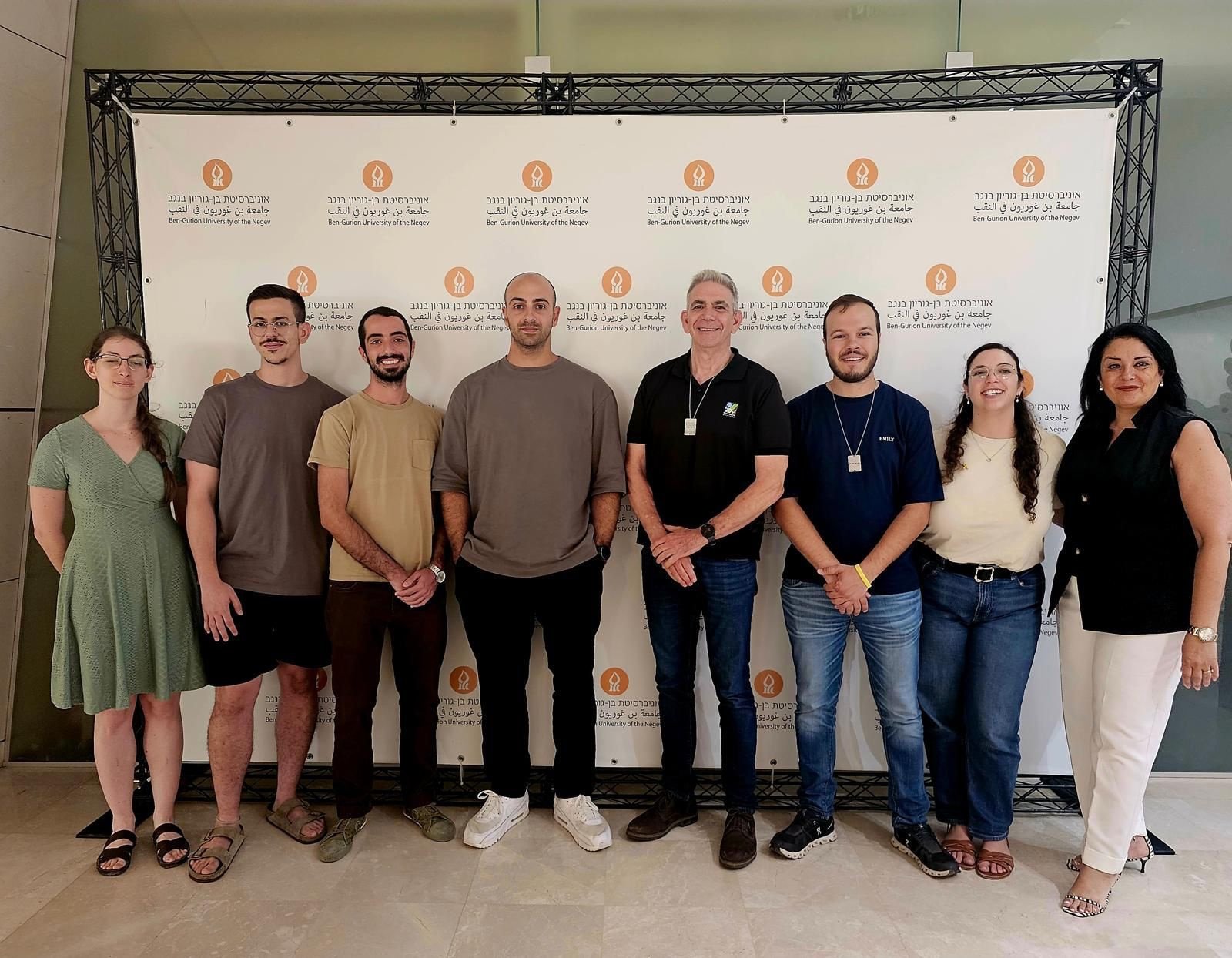
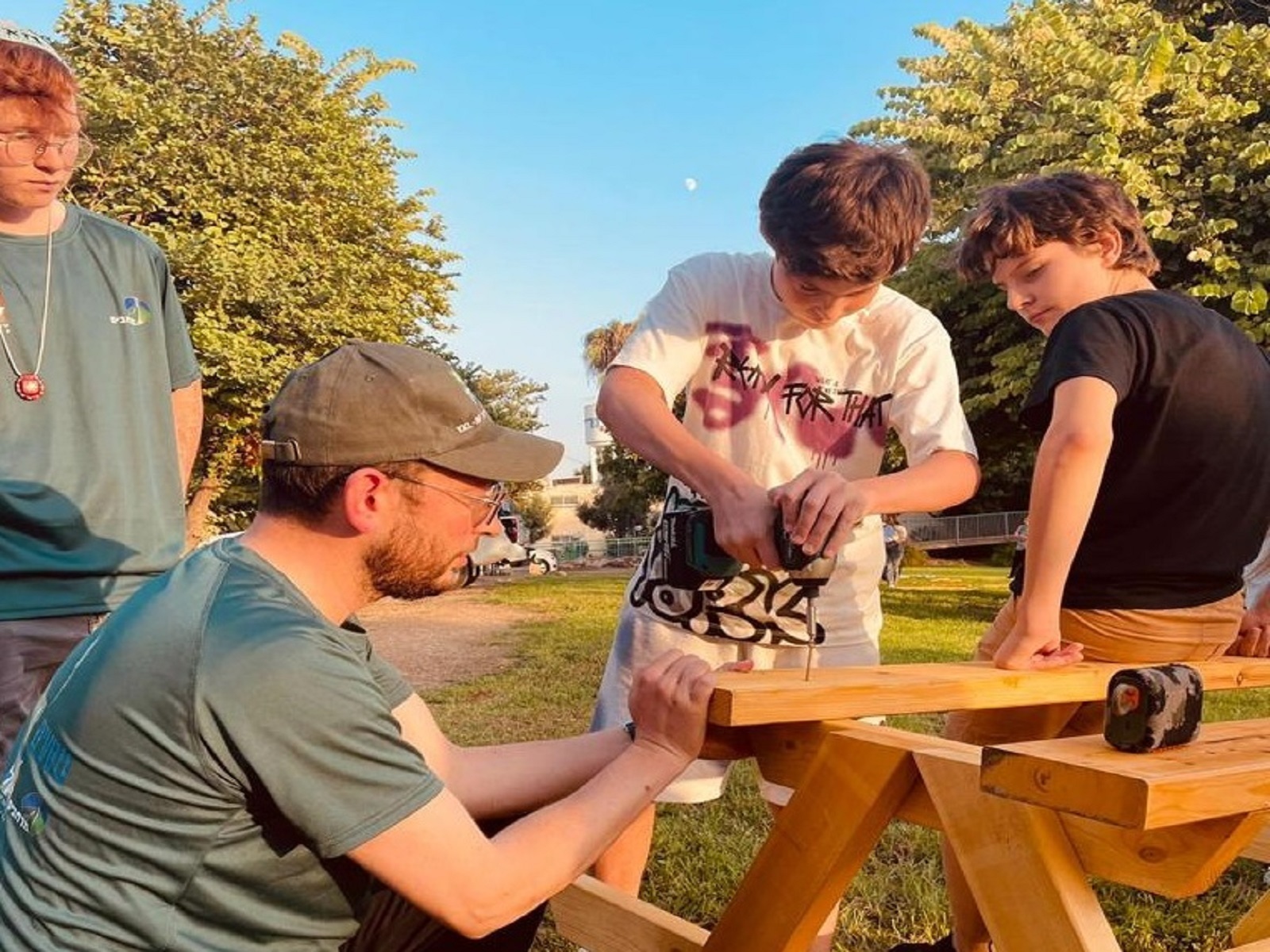
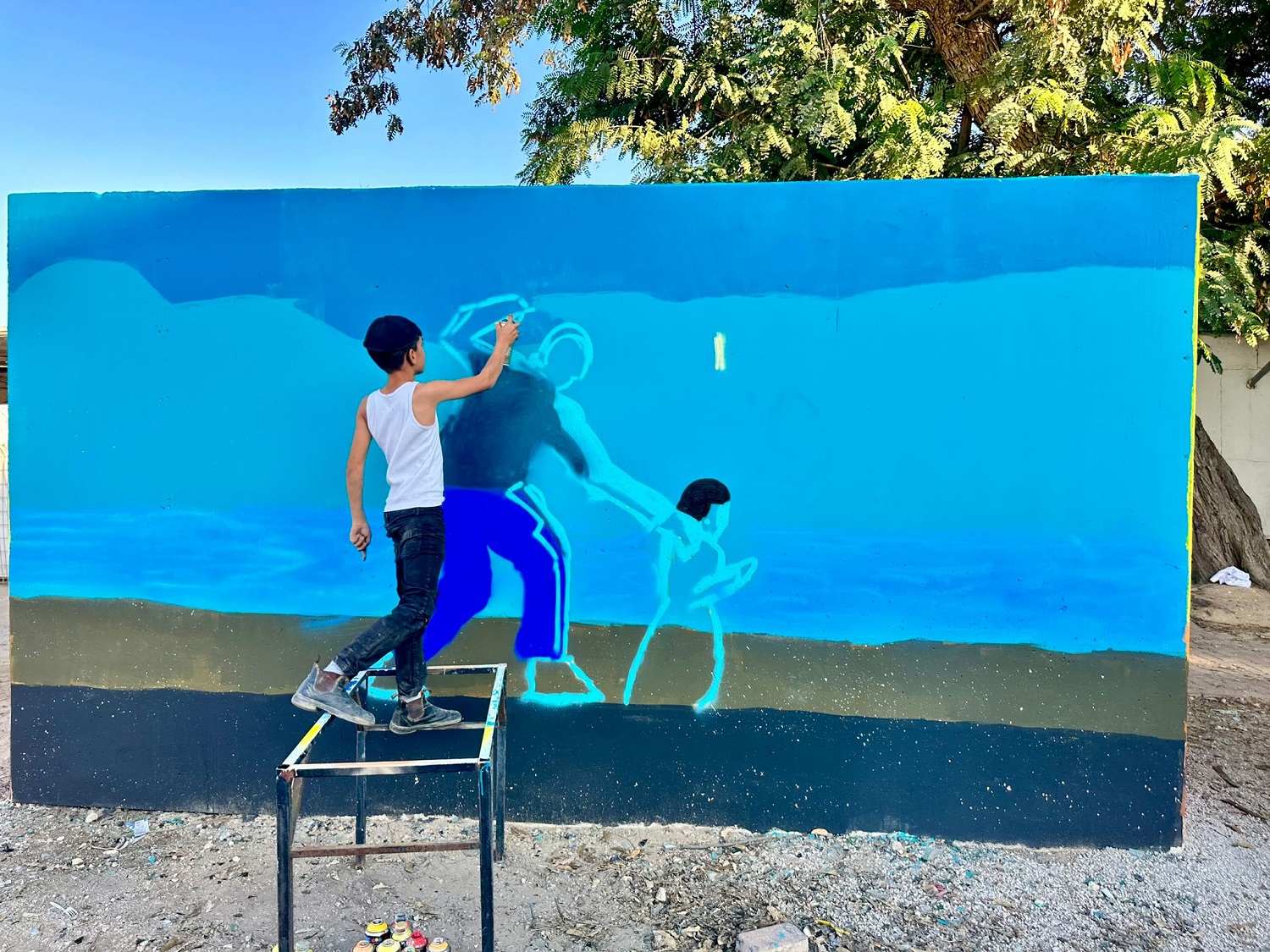
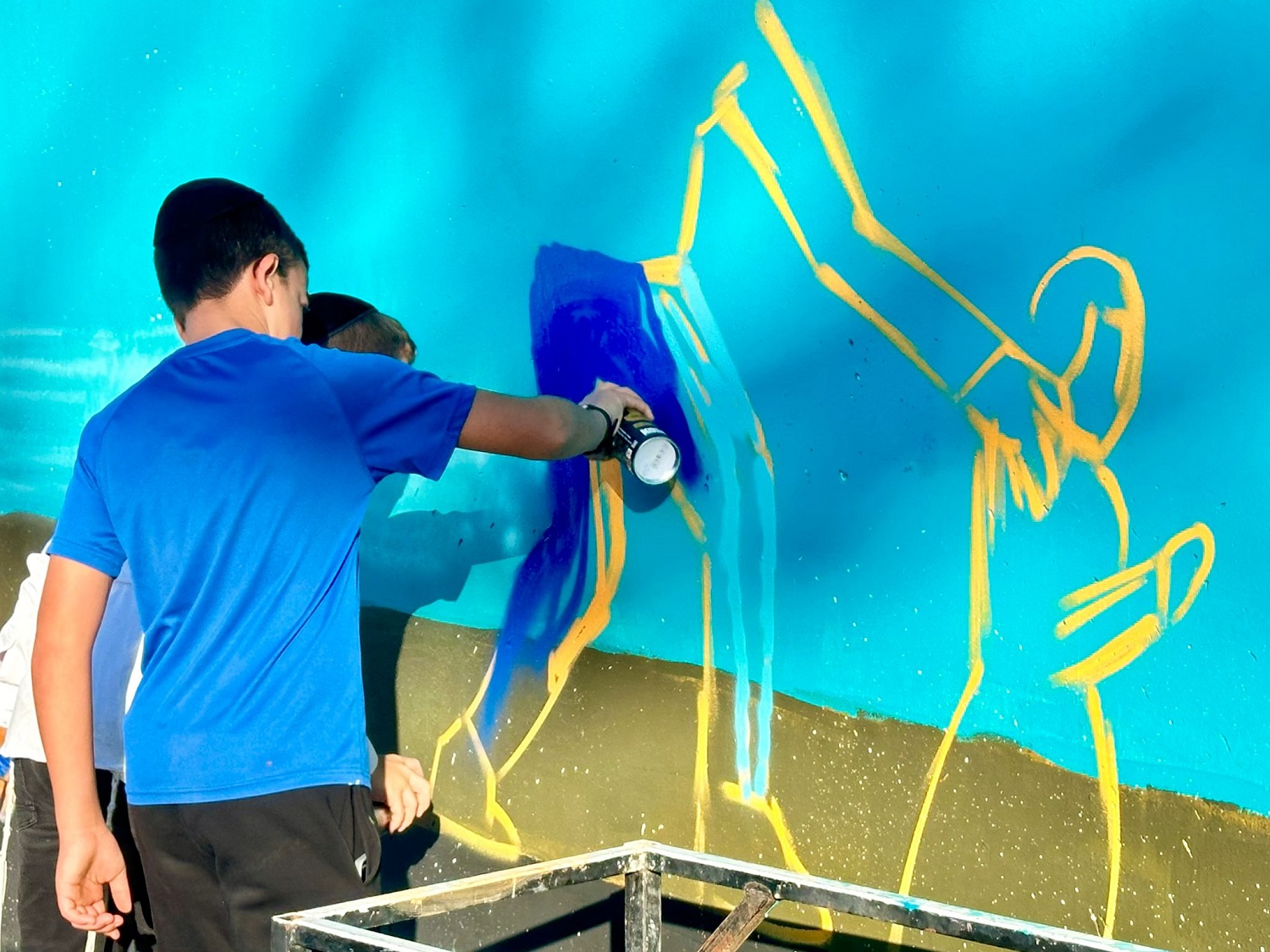
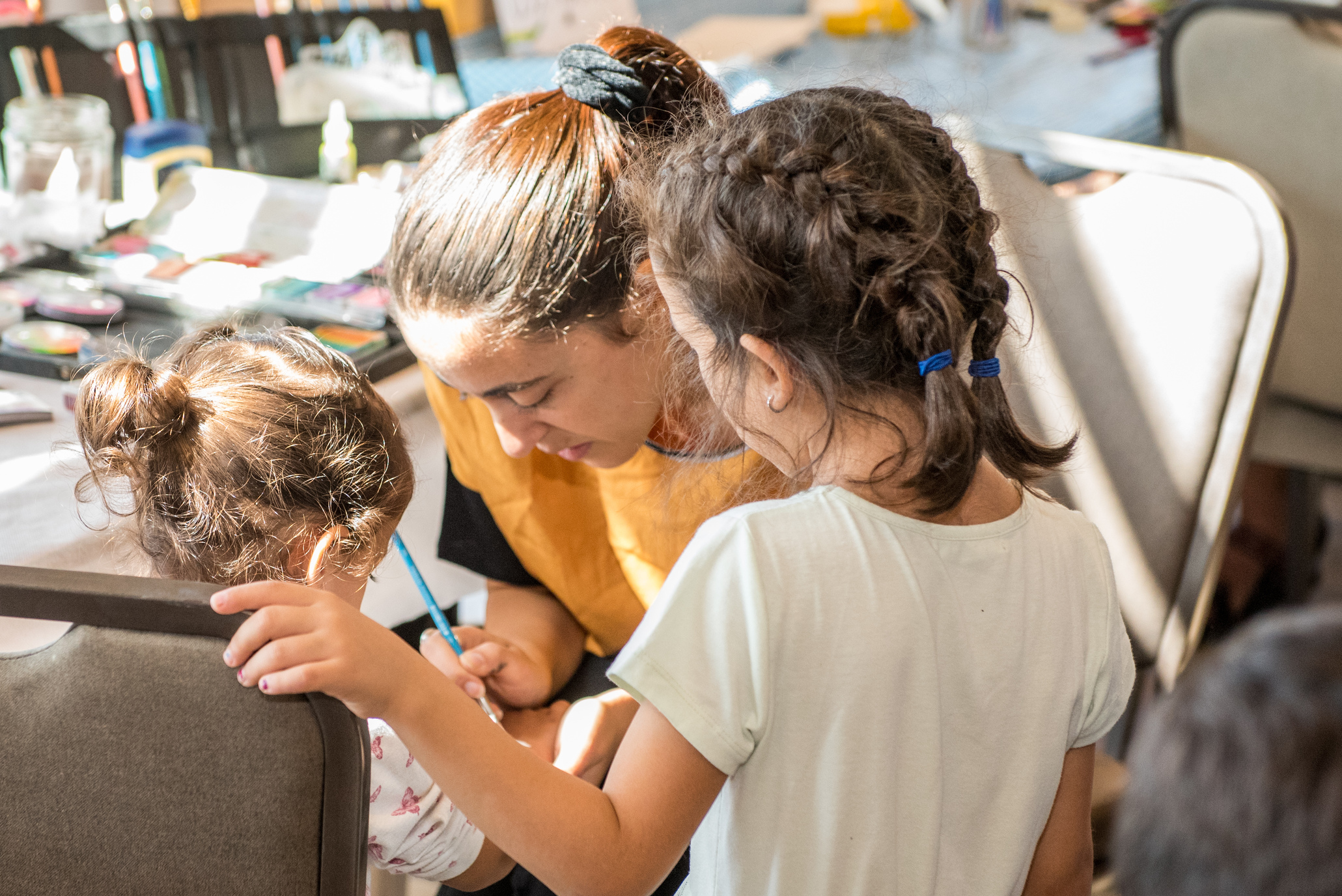
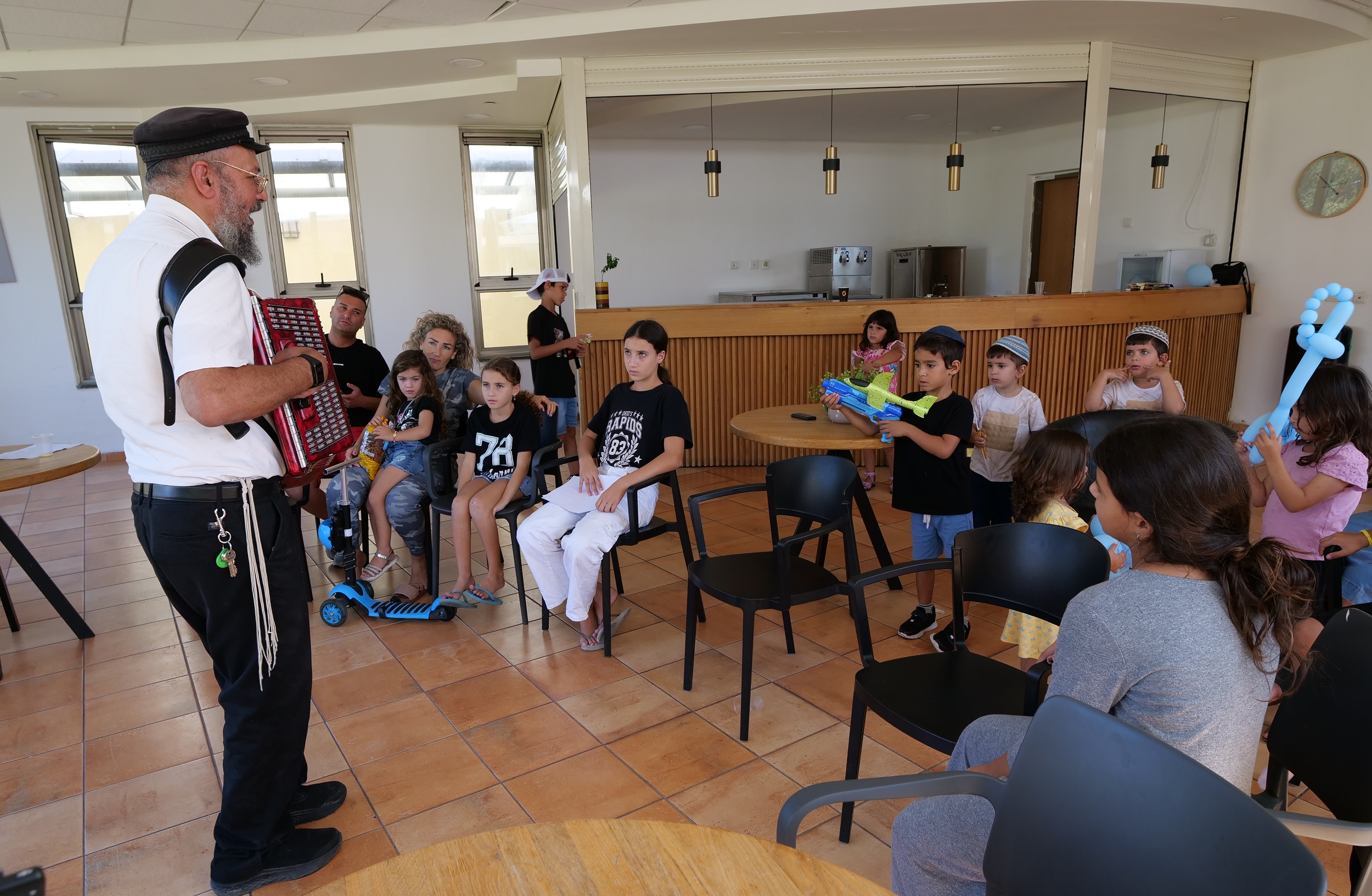
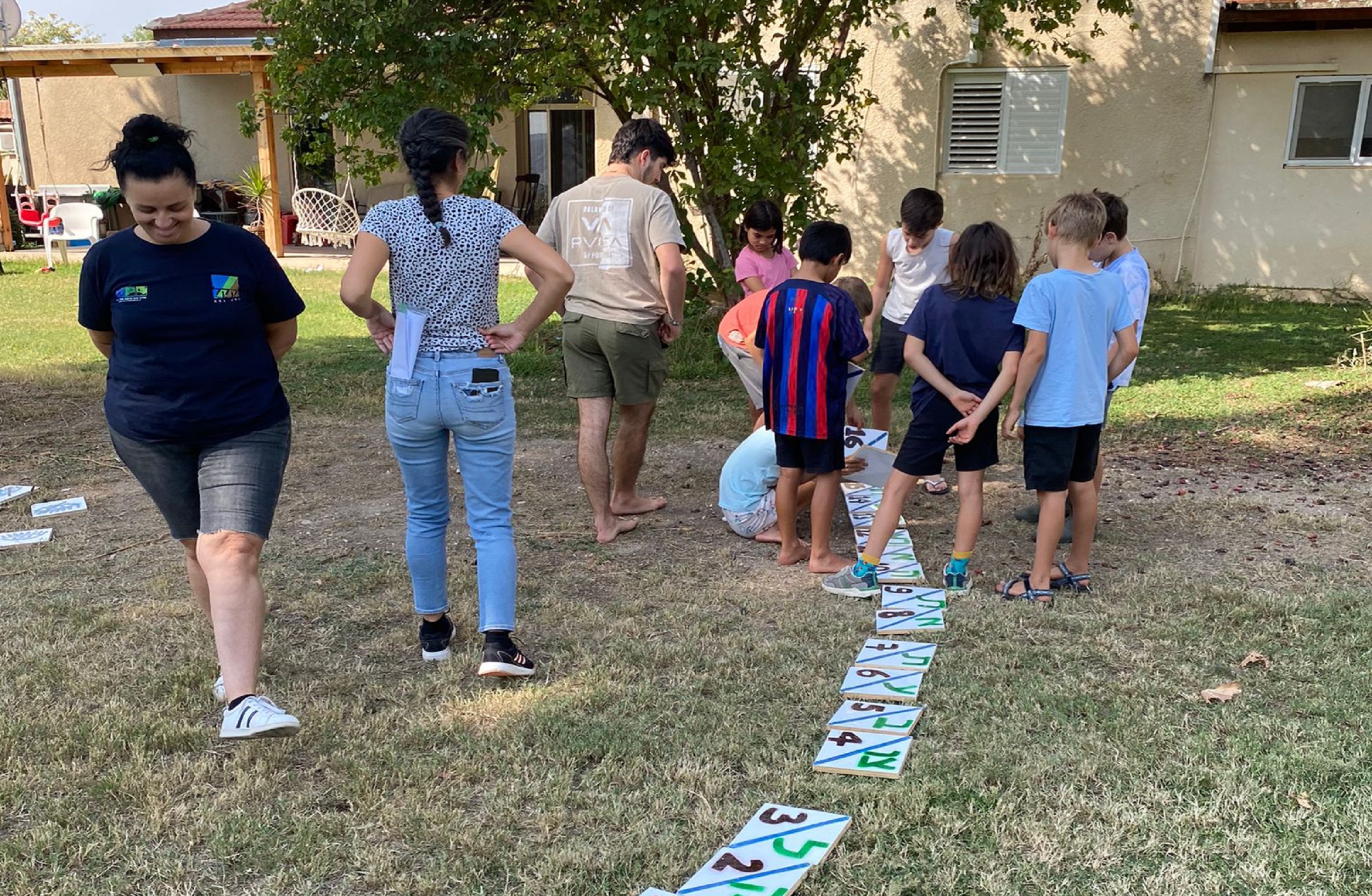
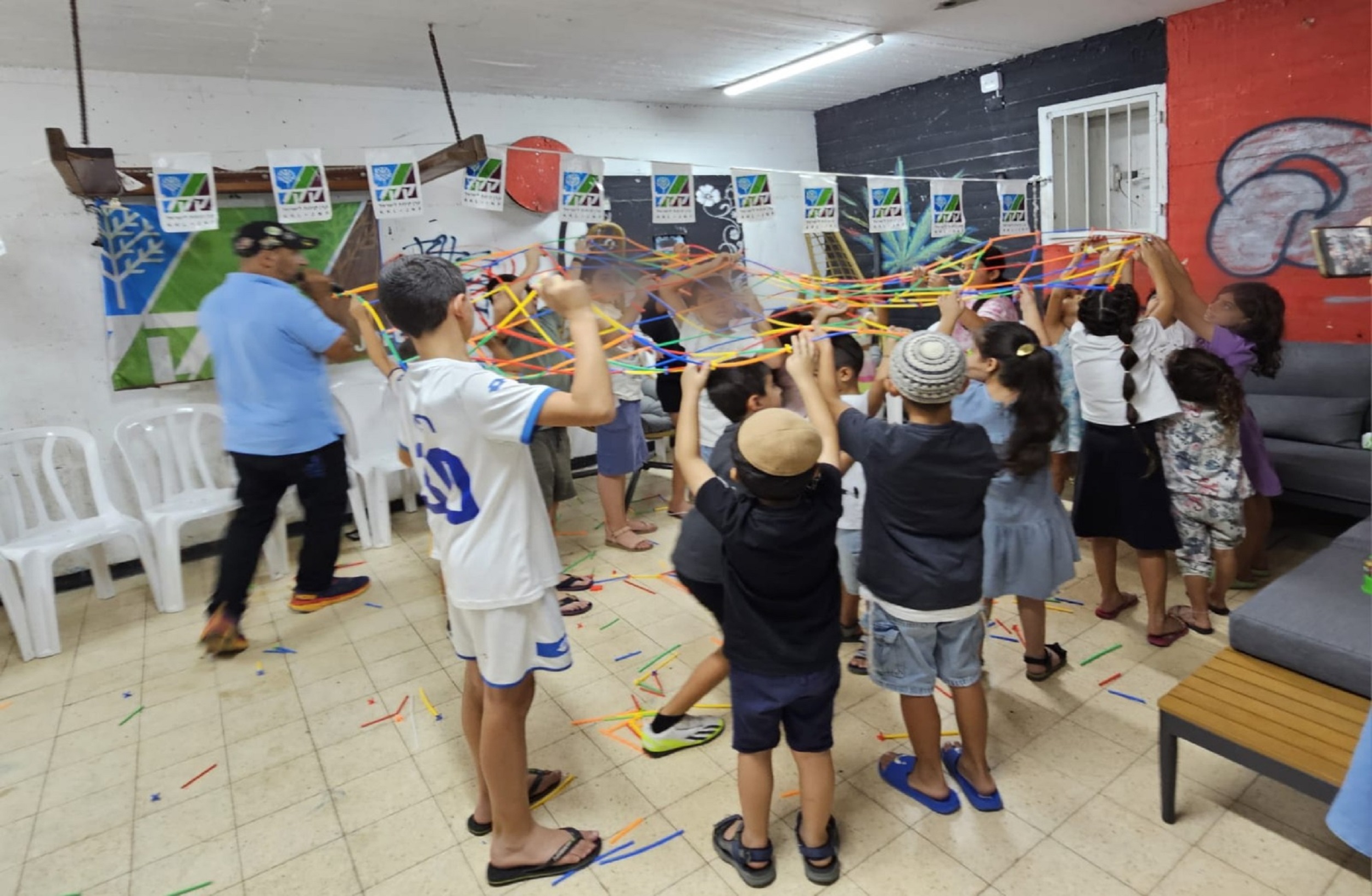
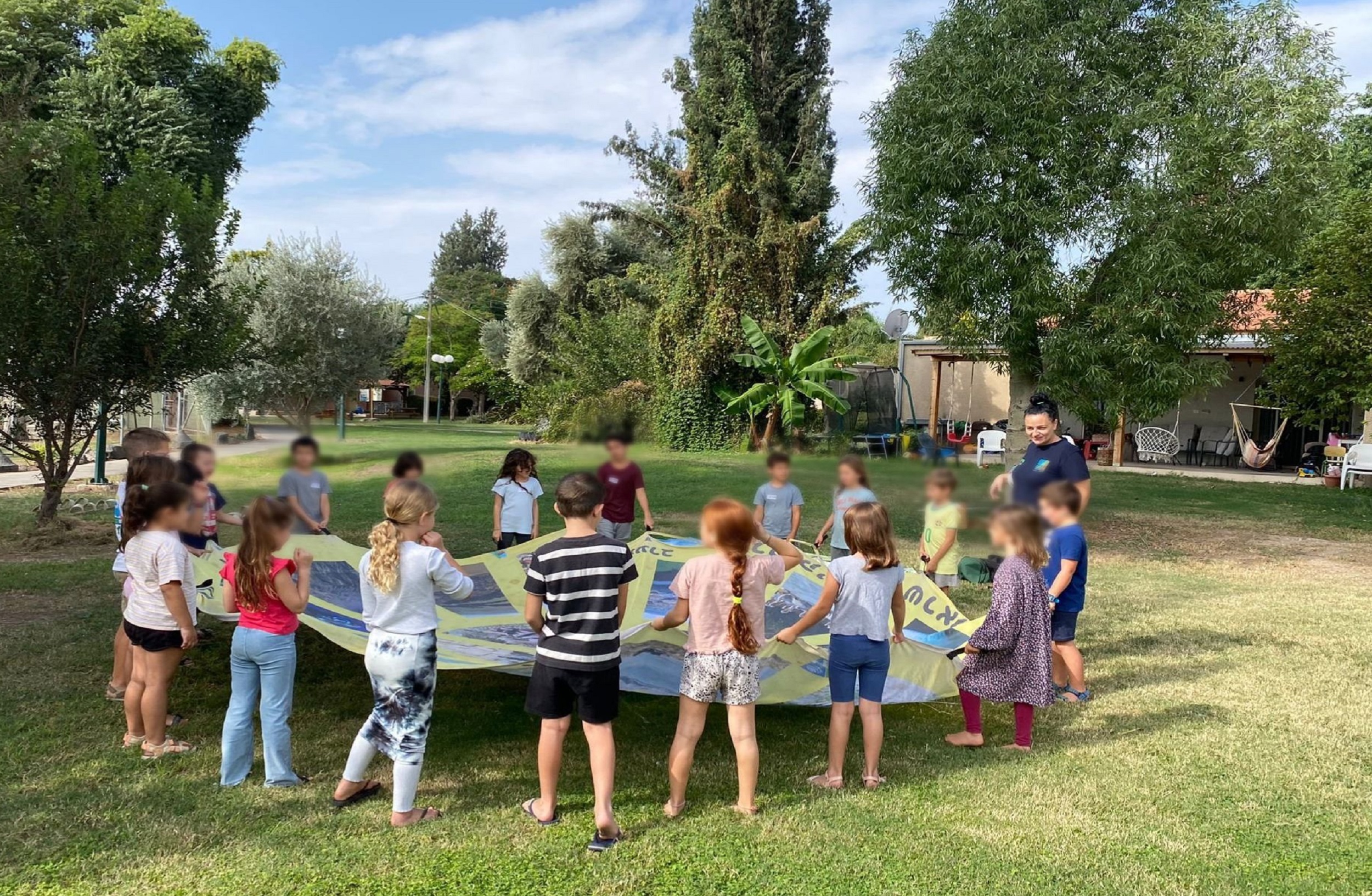
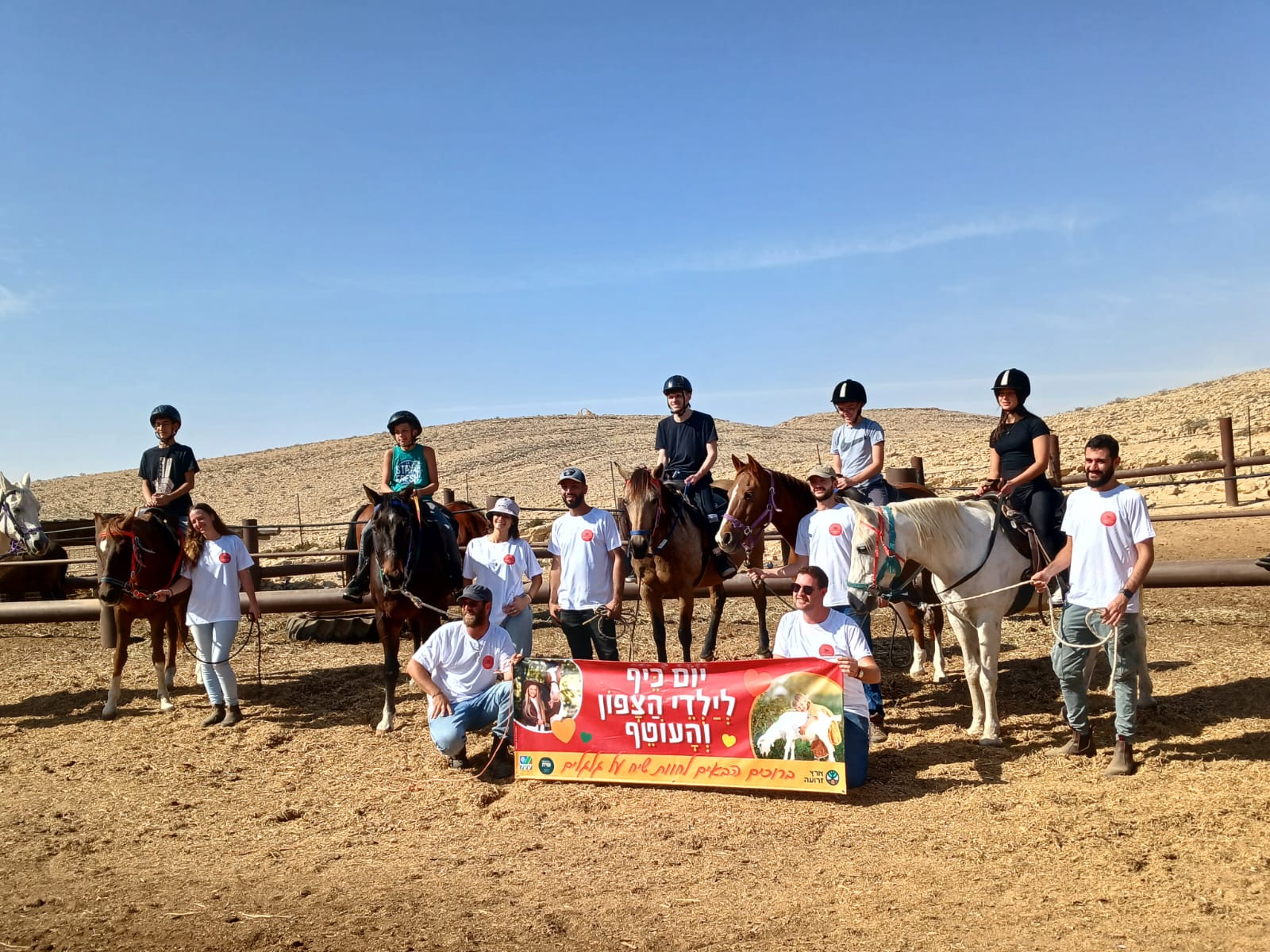
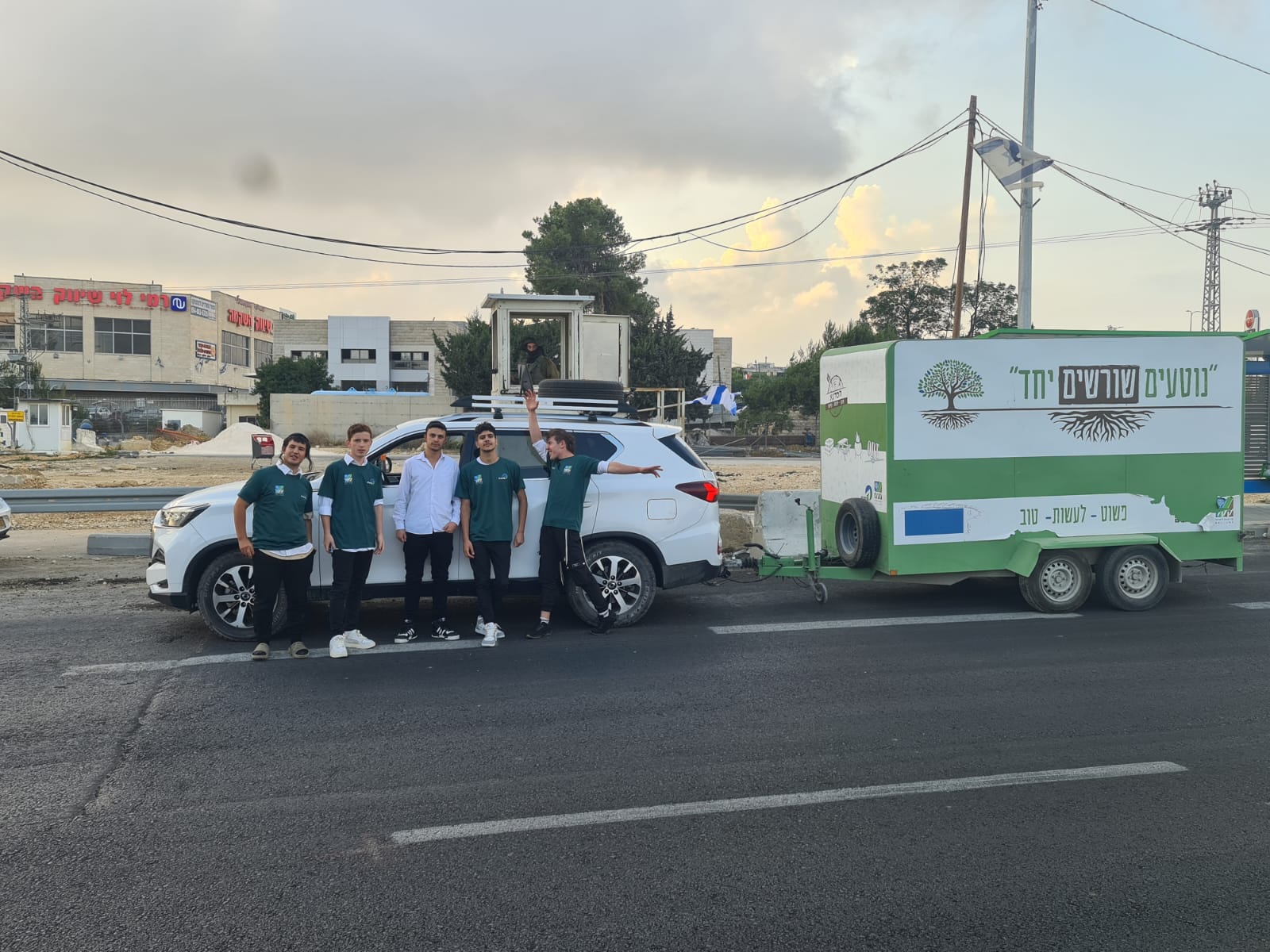
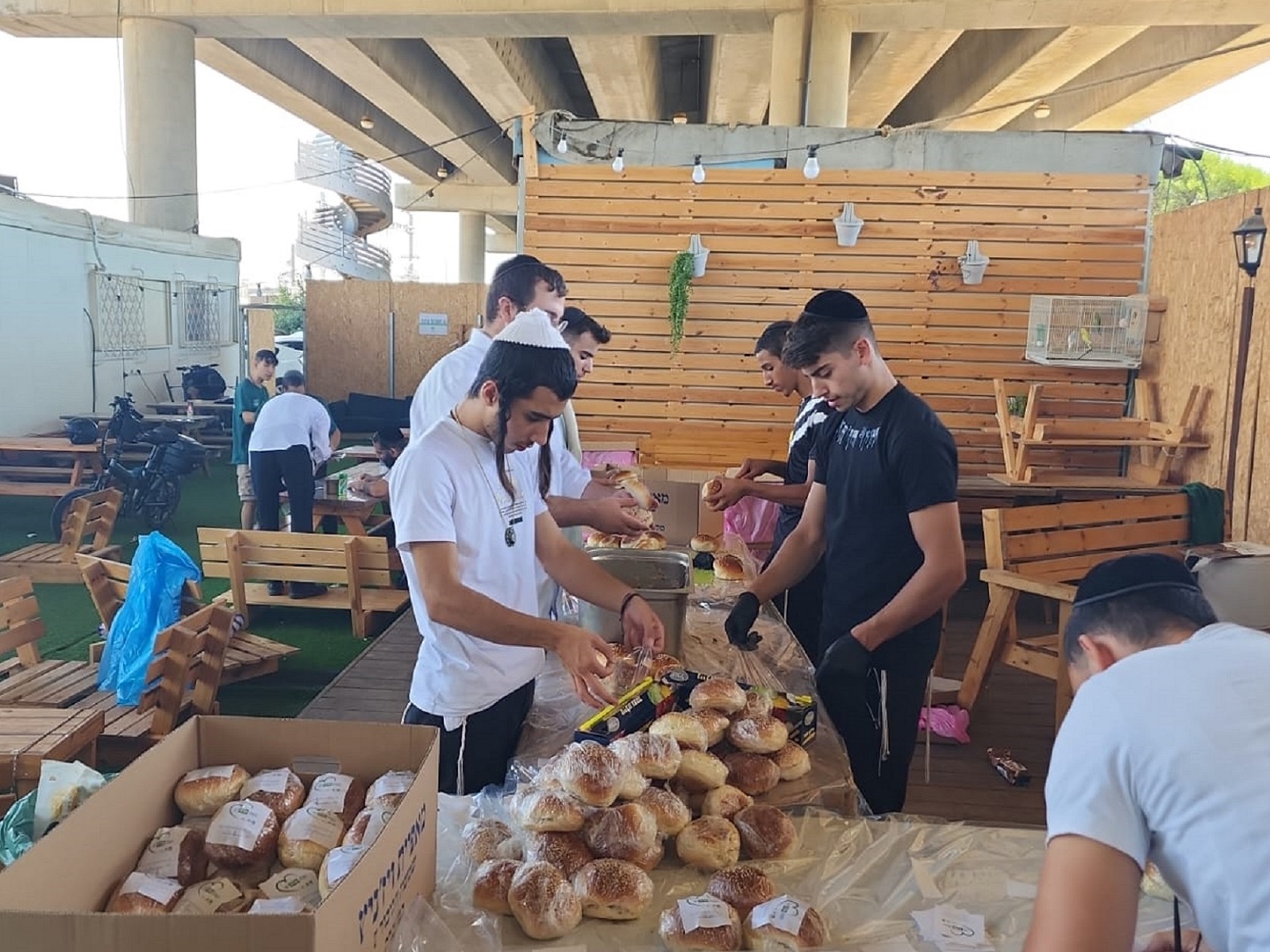
Supporting Aliyah and Creating Resilient Communities
In addition to supporting Israel’s communities, KKL-JNF plays a vital role in facilitating Aliyah (immigration) from around the world. We work alongside the Jewish Agency and other partners to provide essential infrastructure and support for new immigrants, ensuring they have the resources and opportunities to thrive in their new home.
Building Bridges
KKL-JNF is committed to fostering inclusive communities for all religions and ethnic backgrounds. Our projects serve the diverse fabric of Israeli society, including Jewish, Muslim, Christian, Druze, and Bedouin communities. By developing shared green spaces, parks, and forests, we promote coexistence and create opportunities for people of all backgrounds to connect with nature and one another.
A Bright and Sustainable Future
We create and maintain open spaces that enhance local environments and promote sustainable living. Our community forests, urban parks, gardens, and landscaping initiatives provide vital green spaces for all to enjoy. We also prepare land for community expansion and agricultural development, ensuring a greener, more prosperous future for Israel’s northern and southern regions.
Our ongoing efforts to rehabilitate areas impacted by conflict are critical in ensuring that every community can recover and flourish. KKL-JNF volunteers have been an integral part of this process, contributing time, effort, and expertise to help restore affected areas. Their work, along with our dedication, continues to support the rebuilding of these vital spaces.
Why Your Donation Matters
Your generous support helps us continue these critical projects, ensuring that communities across Israel have access to green spaces and opportunities for growth. With your donation, we can:
- Expand and maintain community forests, parks, and gardens, creating spaces for healing and renewal.
- Support education programs that connect children with nature and heritage, fostering resilience for generations to come.
- Develop new communities in the Negev and Galilee, including the infrastructure and resources that strengthen local resilience.
- Provide aid to underserved areas, closing gaps and enhancing social cohesion.
- Mobilize volunteers and coordinate relief efforts to ensure communities receive the support they need in times of crisis.
- Facilitate Aliyah and help new immigrants integrate successfully into their new homes in Israel.
- Support diverse communities and coexistence projects that promote unity and among Israel’s various cultural and religious groups.
Join Us in Strengthening Communities
Together, we can restore hope and build a brighter, greener future for Israel’s communities. Your donation is an investment in Israel’s resilience, ensuring a legacy of unity, sustainability, and strength for generations to come.
Within 24 hours of completing a donation, every donor will receive a beautiful digital certificate.
As part of the donation process, you have the option to personalize the certificate with your own composed message.
The certificate can be easily downloaded and printed using your home printer.
*Please note that the final product is a digital file and does not come framed.
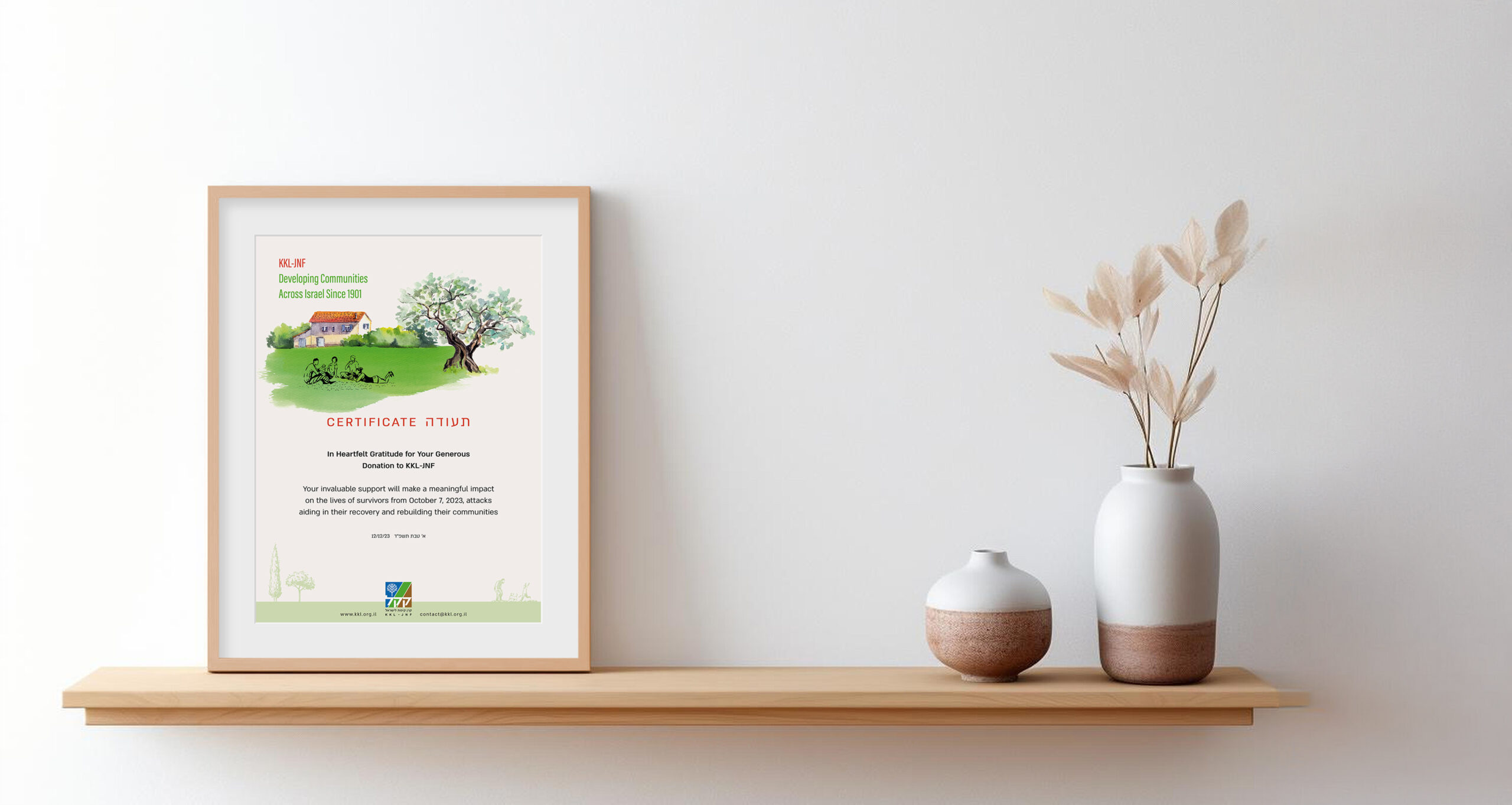
About KKL-JNF
Keren Kayemeth LeIsrael–Jewish National Fund (KKL-JNF) has been developing the land of Israel and strengthening the bond between the Jewish people and its homeland since 1901. KKL-JNF continues to meet the State of Israel’s changing needs and, together with its friends worldwide, create a better Israel through projects in forestry, environment, combating desertification and climate change, community development, water management, ecotourism, agricultural R&D, education and more.
KKL-JNF is a public-benefit company devoted to the sustainable development of Israel. It was established in 1901 at the 5th World Zionist Congress in Basel, Switzerland, for the purpose of acquiring land for Jewish settlement in Eretz Yisrael (at that time Ottoman Empire). Embarking on what was possibly the world’s first global Jewish “crowdfunding” campaign, KKL-JNF went on to purchase and develop 2.6 million dunams (260,000 ha.) for Hebrew agriculture and community development. These efforts essentially laid the foundations for what would become the State of Israel.
Today, KKL-JNF is a national institution, with over 120 years of experience in nation building under its belt. It has chapters all around the country, and hundreds of employees and volunteers from all sectors of Israeli society. KKL-JNF also acts under government mandate as Israel’s Forest Service. In this capacity, it manages some 300,000 acres (120,000 ha) of planted forests, woodlands, and open spaces.
We draw on our strong working relationships with local and national authorities, developed over decades, to spearhead and implement game changing initiatives in KKL-JNF’s three main spheres of activity, as embodied by the 3 colors on our logo: Blue for water management and technologies; Green for forestry, ecology, and climate change mitigation; and Brown for the cultivation of the land and the people living upon it.
Three spheres, one overarching goal: developing Israel to be the best that it can be.
KKL-JNF’s impact is evident in the vibrant patchwork of blues, greens, and browns making up the modern Israeli landscape: the reservoirs and rehabilitated streams; the field centers and recreation areas nestled amidst verdant forests; the delicate filagree of cycling and hiking trails, the gleaming R&D centers and innovation incubators, the brightly colored club houses for youth, and so much more.
True to its origins as a builder of bridges between Israel and the wider world, KKL-JNF operates in more than 55 countries and works in cooperation with various governmental and non-governmental bodies to further common environmental interests, especially in connection to climate change.
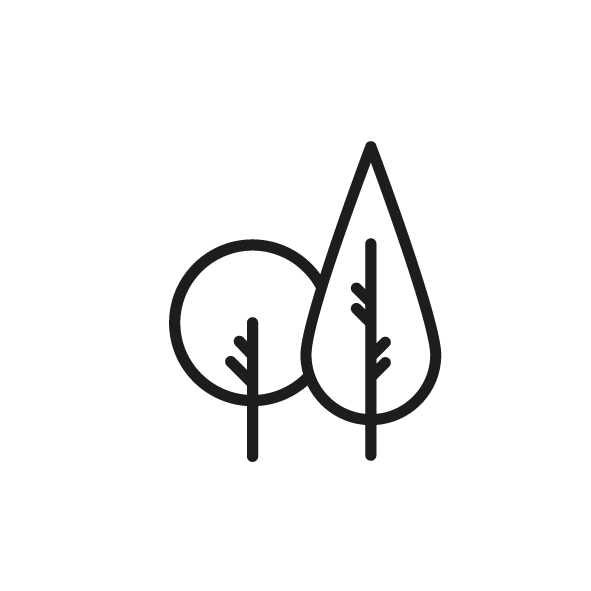




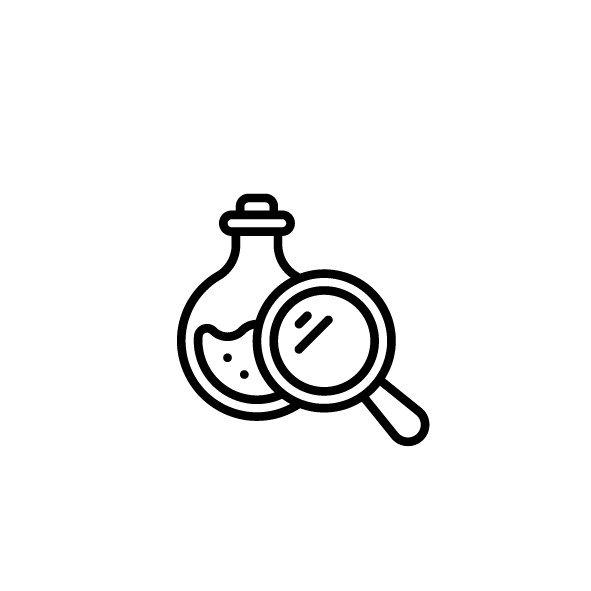


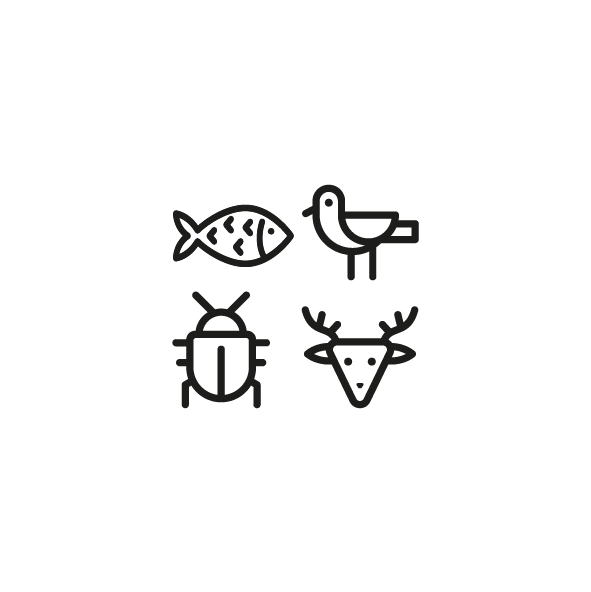
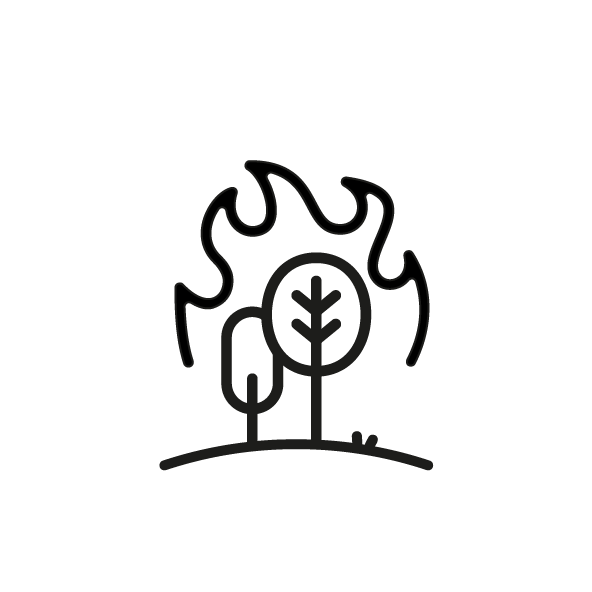
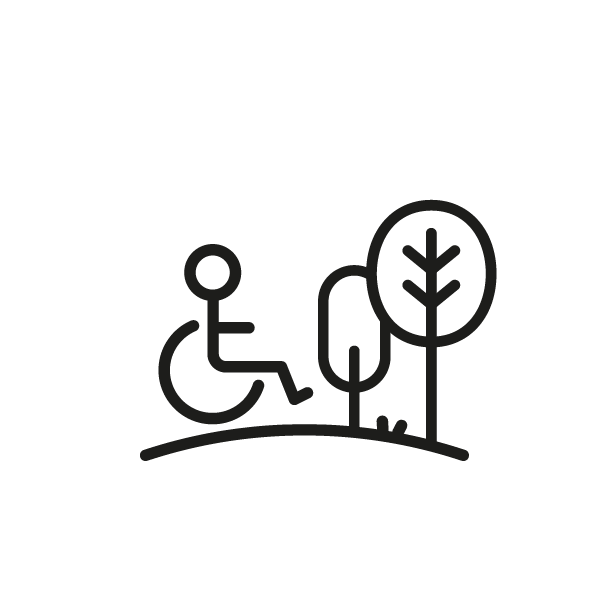










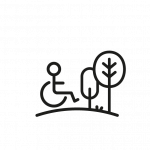
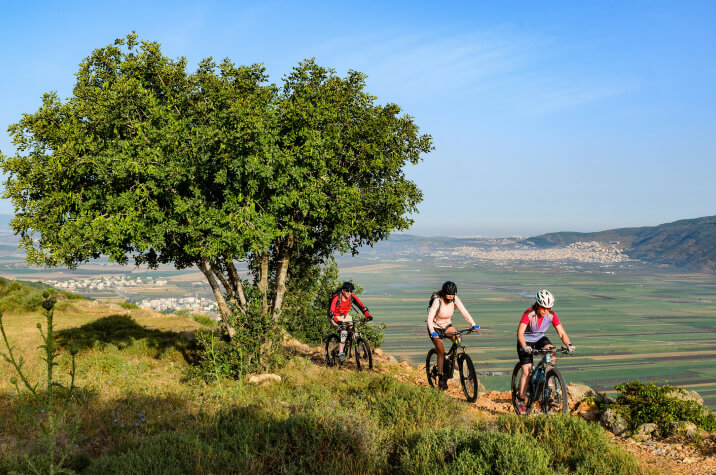
Lorem ipsum dolor sit amet consectetur. Risus sapien sociis tempor gravida faucibus eu aliquet mauris. Adipiscing lorem commodo enim pellentesque nulla sit. Quis aliquet in fusce tortor. Nulla consequat bibendum mattis non eu neque vel leo. Ridiculus est sit aliquet quam et. Turpis imperdiet elit velit accumsan elit et consequat.
Giving Opportunities
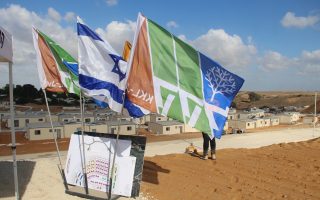
Rebuilding Together
Supporting and strengthening the communities of the Western Negev
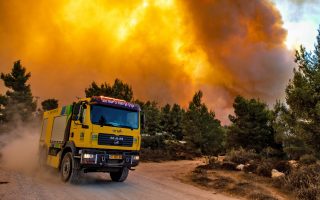
Combating Wildfires
Stand with Israel's forest guardians
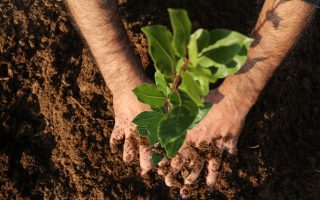
Plant a Tree in Israel
Deepening connections, growing for generations
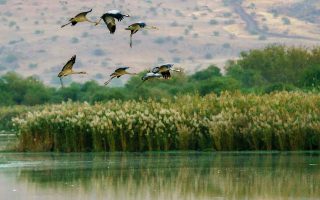
KKL-JNF Hula Lake Park
Preserving Israel's most precious ecosystem
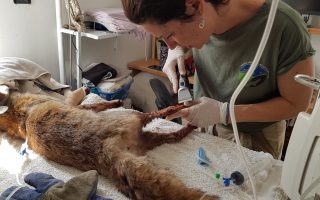
The Agamon Wildlife Clinic
Preserving lives, safeguarding biodiversity
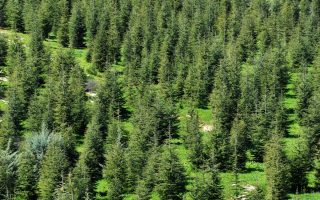
Preserving and Protecting Israel’s Forests

Keren Kayemeth LeIsrael-Jewish National Fund (KKL-JNF) is a public benefit corporation, number: 520020314. KKL-JNF was established in 1901 and since first purchasing land in Eretz Yisrael in the early part of the 20th century, it has continued to operate on behalf and for the benefit of the Jewish people and as the trustee of the Jewish people on its land in Israel
Sign up for our newsletter
Stay ahead with the latest updates from KKL-JNF
